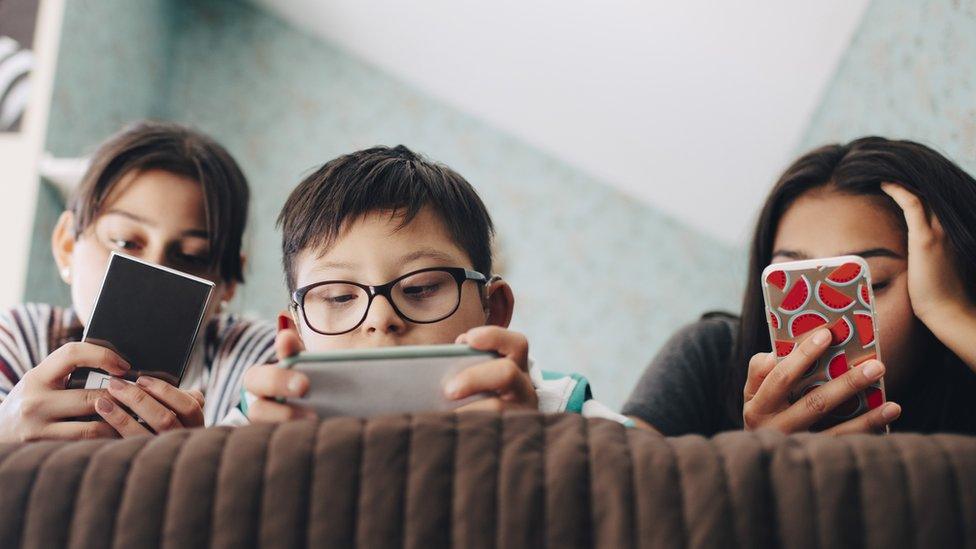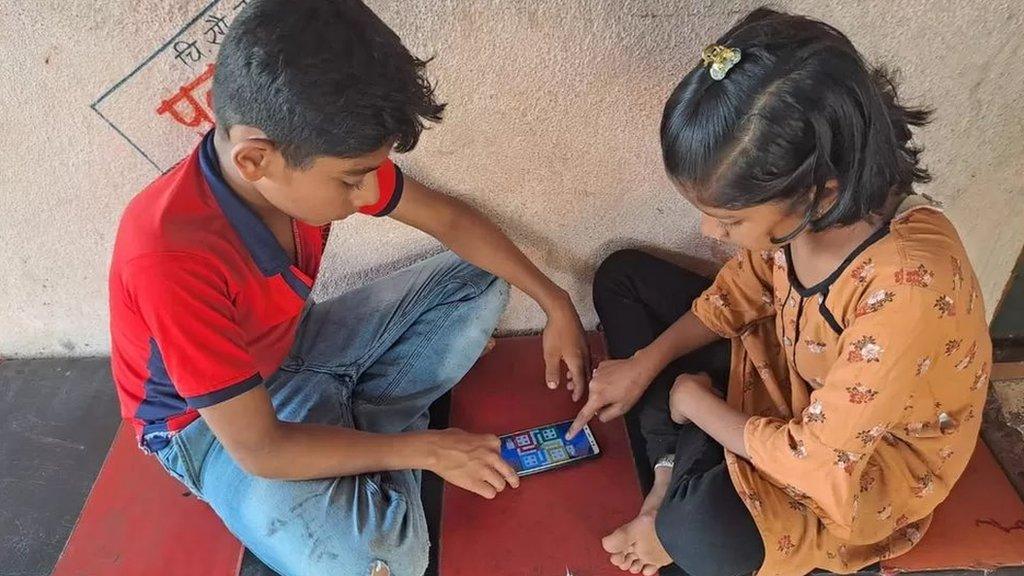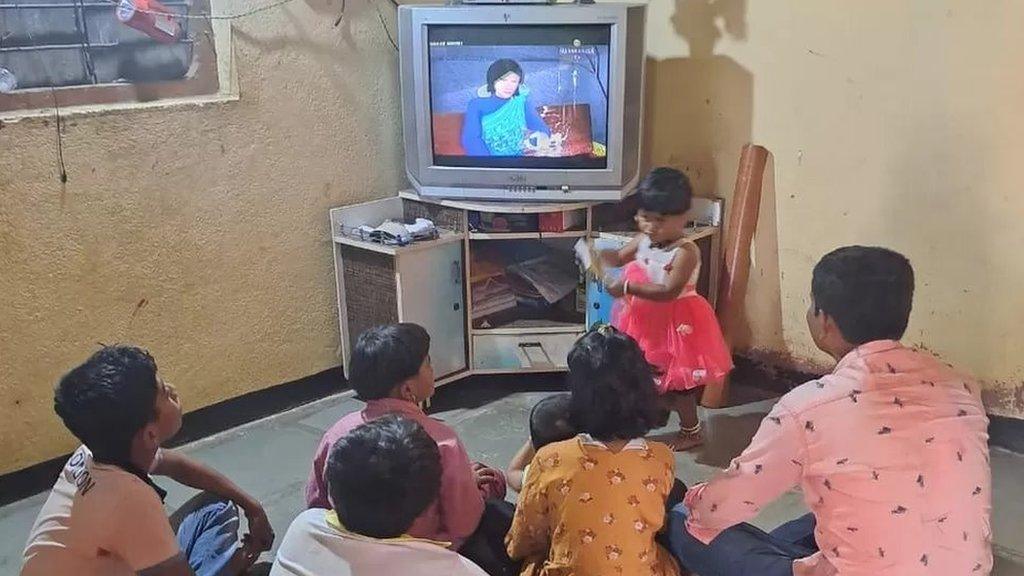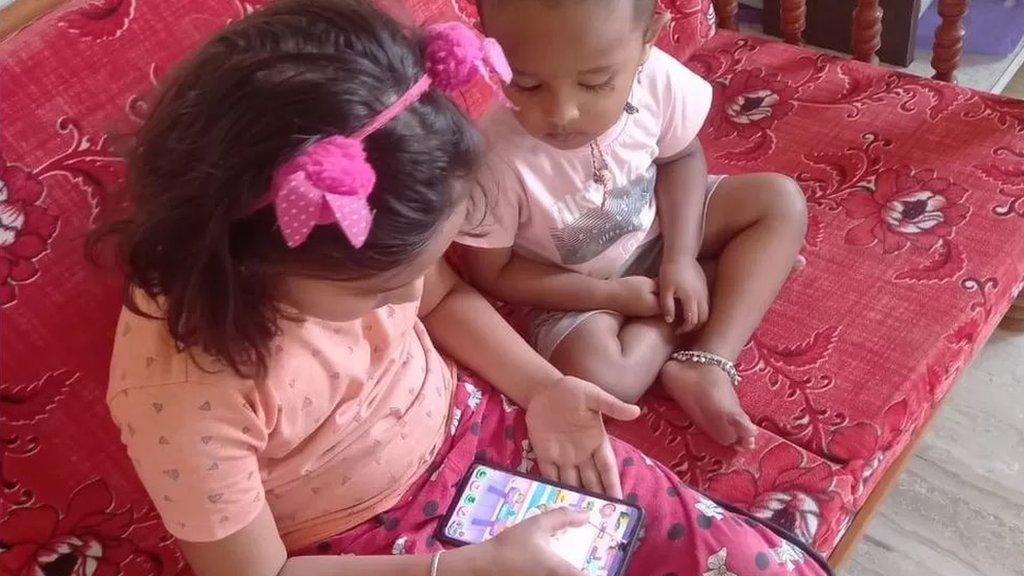A village in India switches off the internet for a daily digital detox: Good idea?
- Published
- comments

Is a daily digital detox a good idea?
Imagine this - you return home after a long day at school and you're ready to wind down and relax by jumping online, only to find out that both watching TV and going on the internet are off limits!
How would that make you feel? Well, a village in western India has done just that.
Vadgaon village in Sangli district has introduced a daily restriction on the use of TV sets and mobile phones for a few hours each day.
The digital detox time goes from 7pm to 8.30pm and those behind it say the move was made to stop the "addiction" people in the village have to watching TV and going on their phones.
The online ban in Vadgaon village seems to have been accepted by its residents, but do you think the introduction of restrictions like this in the UK would be a good idea?
Have your say in our vote, and you can also share your thoughts by leaving us a comment below.
If you can't see the interactive activity above, click here.
How does the gadget ban work?
A siren goes off at 7pm every evening which tells residents that it's time to turn off their TV sets and mobile phones.
The gadgets can be switched back on when the village council sounds the siren again at 8.30pm.

People in Vadgaon village aren't able to use their phones from 7pm to 8.30pm every day
"We decided at the village meeting on 14 August - the eve of India's Independence Day - that we needed to stop this addiction," Vijay Mohite, who is the president of the village council, told BBC Hindi.
"From the next day, all television sets and mobiles were shut down when the siren went off."
Mr Mohite said children living in the village, which has a population of about 3,000 people and is largely made up of farmers and sugar mill workers, had relied a lot on TV and mobile phones for online classes during the coronavirus pandemic.
The children returned to their regular classes once schools and colleges reopened.

Many in the village were reluctant to agree to a digital detox every evening
However, the gadgets they had come to rely on throughout the pandemic continued to play a big part in their lives.
"They returned [from class] to either play on their mobile phones or sit and watch television," he said, adding that many adults were also spending too much time on their devices and not talking to each other.
How have people responded to the change?

The restrictions on the use of phones has brought about some positive benefits
One mother said she was finding it difficult to supervise her two children "because they would be focused completely on playing with the phone or watching TV".
"Since this new norm began, it is far easier for my husband to return home from work and help them study and I can peacefully do my work in the kitchen," she said.
Despite the positive effects of the ban, it wasn't easy for the village council to get everyone on board with the idea of a digital detox.
However, it was the adult women in the village who admitted they often got sucked into watching lots of TV every day and they agreed the daily restriction could actually be beneficial.
What impacts can going offline have?
Dr Manoj Kumar Sharma, who is a professor of clinical psychology at the National Institute of Mental Health and Neurosciences (Nimhans), says less time online can be a positive thing.
Digital fasting as a family to engage in quality-based activities is a cornerstone for decreasing dependence on online activities, Dr Sharma says.
"You need to talk to children and ensure they have physical or offline leisure activities as well as adequate sleep and food intake," he added.
- Published3 September 2018

- Published3 April 2023
- Published8 July 2019

